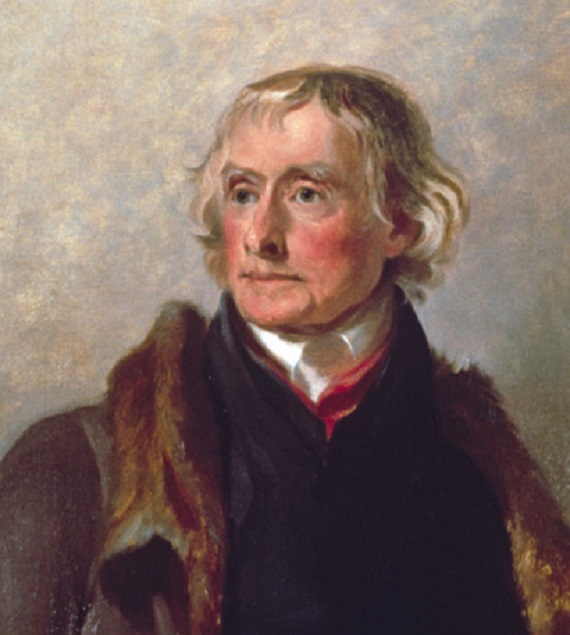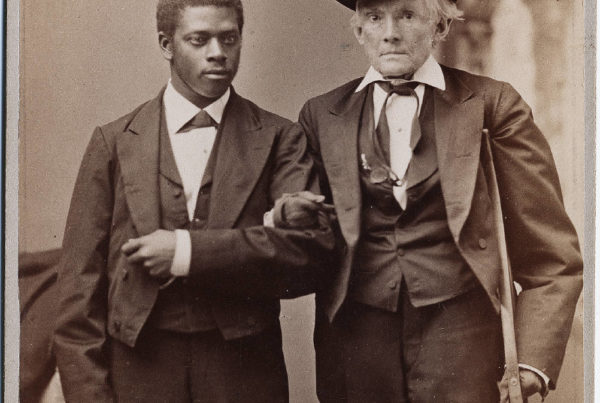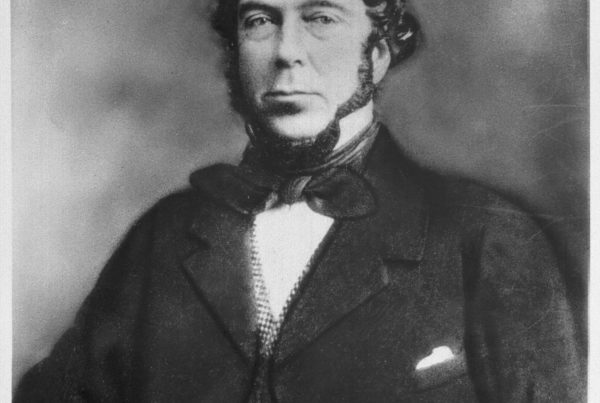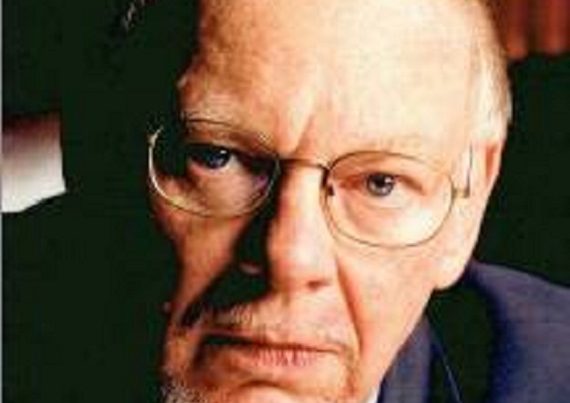
A Review of A Plague on Both Your Houses, by Robert W. Whitaker. New York: Robert B. Luce, 1976, 208 pages.
Hardly anyone has commented upon the seeming disappearance from American life of the Jeffersonian democrat. The Jeffersonian democrat was a hardy American breed, perhaps the only political type original to this continent. Outnumbering all other species between 1800 and 1861, he was a numerous beast long afterward and was spotted quite often even as late as the 1940’s. Since then he seems to have disappeared, if not into extinction at least out of the official catalogs. The disappearance is not surprising—Jeffersonian democrats, since their first discovery in colonial America, have never enjoyed academic or media respectability.
Mr. Whitaker is a keen observer. He has spotted them in the interior where they are alive and well (although restless) and number in the millions. He calls them populists. (“Jeffersonian democrat” is the reviewer’s gratuitous amendment of the author’s terminology, for reasons that will become apparent.) Mr. Whitaker speaks not only as a man of science, demonstrating the existence of the phenomenon. He is also an angry and eloquent advocate in behalf of an endangered species with which he is proud to identify himself.
By the author’s lights America has been dominated by three successive elites, each of which has played an important role in the nation’s development but each of which, alter a time in power, has grown arrogant and dysfunctional. First came the planter aristocracy that founded the Union and guided it through its early perils. Having outlived its usefulness it was overturned in the Civil War by a capitalist elite which bequeathed us our economic might. That was displaced by the third and current elite which may be dubbed the welfare-education establishment. Despite its own modest disclaimers, this establishment predominates: It consumes a huge proportion of the GNP, sets the nation’s agenda, and enjoys the privilege of suppressing attacks on its own legitimacy. Each earlier elite in due course succumbed to a wave of protest from the masses and the provinces— an outsider’s uprising that Mr. Whitaker calls populism. The burden of his chapter and verse is that our present masters have become oppressive and their hegemony is ripe for collapse.
While I could easily quarrel with some of the particulars of his historical scheme, I would not wish to detract from the power and eloquence of Mr. Whitaker’s manifesto. He is, as one of my undergraduates once described Edmund Burke, “a leading revolt analyst”—and more. Nowhere have 1 read a more reasoned, penetrating, and enlightened philippic against the present establishment, or rather two establishments, for it is Janus-headed. “Both your houses” denominates the welfare-education complex and its lesser counterpart, the conservative establishment which (although rather incompetently) monopolizes “patriotism” and “free enterprise” as weapons of self-interest in the same way the welfare-education Liberals monopolize compassion, morality, and progress. (By a slight permutation in the imagination, the two houses which suffer Mr. Whitaker’s well-deserved imprecation become the Democratic and Republican parties.)
Whitaker, then, cuts himself loose from all comfortable havens. He writes wilt the independence of mind of a man who has made his way unbeholden to either establishment and with the anger of one of the great multitude of outsiders who has fell first-hand the injustice and self-righteousness which it is their fate to bear. He is a real radical, not one of the pet radicals, useful and well-paid allies of the present regime, who arc trotted out now and then by the media. Whitaker, to plagiarize another undergraduate essay on an earlier populist, Andrew Jackson, “has guts.”
His indictment of the reigning elite is complete. It has not only become highhanded and counter-productive, it is indeed undermining our economy, our defenses against the foreign enemy, and our social peace. And it has become almost immune from public opinion and democratic process. For instance, it supplies public schools with busing and obscene textbooks “for no apparent reason,” Mr. Whitaker writes tellingly, “except to demonstrate to parents that the establishment can attack their values and get away with it.” The elite’s methods and goals flout the democracy of which they claim to be the advanced spokesmen and protectors. The blood and sweat, not to mention the tears, of the millions is as nothing to them. Seldom has the case been better put. Our Liberalism is monolithic, inadaptable, terroristic, dishonest, and dysfunctional. It does bear a negative relationship to democracy, progress, freedom (including freedom of speech), and the common man. It is a vast imposition on the “producing majority”—to use a phrase of the late conservative theorist Frank S. Meyer, another Jeffersonian democrat whom Mr. Whitaker unconsciously resembles. The present establishment docs exploit the working middle classes—economically, psychologically, and even, Whitaker suggests, genetically, by policies which favor the fecundity of minority groups against that of the majority.
In the American locus, Jeffersonian democracy has been the traditional faith of the producing majority; therefore, the term seems to me a better one than populist, an elastic appellation long ago robbed of denotative content by conservatives raising the alarum against imaginary bogeymen and Liberals attempting to co-opt an affiliation with “the people” to which they have no honest claim. Jeffersonian democracy divides the political world into “producers” and “aristocrats,” the last a technical term not suggesting any of the virtues traditionally associated with aristocracies. Producers are those who do their biblical labor in the vineyards and add something to the total store of wealth of the community. A producer was synonymous with a good citizen and a true “republican” in the glossary of the Founding Fathers. An “aristocrat,” in contradistinction, is one who lives by unearned privilege or clever maneuver, who profits by some artificial (that is, politically-decreed) special advantage at the expense of the producers.
A Jeffersonian democrat (or populist) is not a programmatic Utopian or egalitarian at all. He is one who normally goes quietly about his business. He is, in fact, an American Tory, swearing no allegiance except to King (that is, Constitution) and Country. He is propelled into political action only by an acute sense of outrage when the “aristocrats” become too reckless and extortionate. In Jefferson’s time those who turned the blood of the Revolution into gold by unnecessarily magnifying the national debt aroused this response. In Jackson’s time it was the owners of the national bank who enjoyed a private, politically-granted monopoly of the credit mechanism. In Bryan’s time it was, among others, railroads built by government subsidies and operated by rates rigged with government connivance. Whitaker’s indictment of the welfare-education complex falls in the same tradition. And the “aristocrats,” those who own the profitable orthodoxy, have always cloaked their privileges and benefits with arguments of morality and social beneficence, and branded those who enter objections as ignorant renegades unable to appreciate what all right-thinkers see is the only sensible and righteous scheme of things.
The distinction between producer and manipulator that underlies Jeffersonian democracy (though my formulation does Whitaker an injustice by slighting the sophistication of his analysis) has always seemed to me to be correct from the point of view of public ethics, although there is a danger that productive but intangible services to the commonweal will be misconstrued as parasitical. The distinction, indeed, is the whole point of what the Founding Fathers meant by a republican arrangement in which nobody had artificial privileges. And, as previously suggested, this is the distinctively and instinctively American stance. All alternative public ideologies are derivative of European conditions and theories and do not come naturally to the American, although unfortunately they seem to become more and more relevant as conditions alter in the Old World direction.
Later accretions to our national store of ideologies have tended to obscure what Jeffersonian democracy meant. It is the opposite of Marxism. It postulates: to each according to his merits. The common American is a conservative and a democrat because he is the traditional American and because he acts in self-defense, not from ideology. The common American (with the possible exception of one Puritan-derived minor version) is no enemy of religion, tradition, or private property. In fact, he may be the only numerous group left in the world who can be trusted with these inestimable treasures. (Incidentally, and contrary to a widespread but apparently ineradicable impression, Thomas Jefferson was a more religious man than his “conservative” enemies Hamilton and Adams, who gave lip service to orthodoxy but were at heart freethinkers. And that is not to mention the great orthodox mass of Jefferson’s followers.) Jeffersonian democracy, despite the claims of its critics, has never carried democracy to excess, it has never defied the common man (although certain intellectuals clinging to its Hanks may have). It has merely said that the common man, by definition, is more likely to be disinterested than any elite and that in the long run and in the larger things can be trusted to govern better than any privileged group. Its leaders have come out of the rural (usually Southern) gentry and they have more often been statesmen, as opposed to demagogues or caretakers, than the leaders of any alternative movements.
This last point is not irrelevant to the most recent presidential election and confirms Whitaker’s description of the potential for revolt. Much of Mr. Carter’s appeal to the electorate lay, it seems to me, in his populism. He seemed to touch faint, fond chords of memory far back in the national psyche, of a lime predating the exactions of capital, labor, and bureaucracy, of a time when soft-spoken Southern statesmen administered the government as an exercise in dignity rather than as a trough overflowing with slops for the best-placed hogs. But the echo of the applause for his nomination had not died away before he revealed himself to be (unless he should yet fool us) the captive in substance, if not in style, of the establishment.
This would seem to militate against Whitaker’s forecast of the imminent new day beyond the collapse of the present orthodoxy. No intelligent observer not in the pay of the establishment can fail to feel the force of his observations on its failures. The trouble is, most of us are in its pay, in some way or other. Our previous establishments had redeeming weaknesses. The planter elite was trained to ethical public service. The business elite, in the final analysis, had to submit to the discipline of the marketplace, and it did produce the goods. But neither had at its beck the resources of modern bureaucracy and mass media monopoly.
Yet Whitaker is right. Out there south and west of the Hudson, in the sprawling suburbs, towns, and farms, live the great millions of at least potential populists. They are the American nation. They do the work. It is they who will defend the republic, if it is to be defended, against the foreign enemy. It is their hopeful homes and unfulfilled ambitions that are the great reservoir of talents that are needed to reinvigorate the arts, sciences, and professions in each generation. They sustain the values that make communal existence possible. Right now, as Mr. Whitaker so eloquently specifies, they are beleaguered. Many a heroic parent among those millions is engaged in an embittering struggle to maintain decency, order, and productivity in the face of crime, drugs, obscenity, inflation, the insolence of thugs and officials. They have been betrayed, by and large, by their clergy and teachers. The businessmen and professionals to whom they look for leadership are sequestered in exclusive enclaves, buried in narrow specializations, or co-opted into a sterile conservatism or even into the establishment which threatens them. It could be that in those millions of modest homes, in the leaders they are producing or searching out, the future is being forged. So if you would know where America is coming from and where it is going, discard your comforting liberal or conservative incantations and pay attention to one honest, angry man who has been there. (1976)






